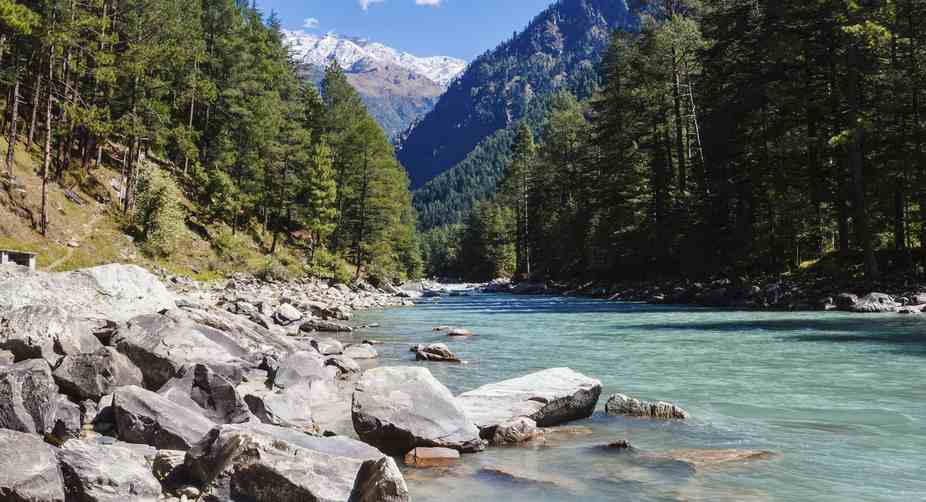Rail services disrupted by GCPA protest
Train operations were brought to a standstill today following a rail blockade staged by the Greater Cooch Behar People's Association (GCPA) at Jorai Railway Station near the Bengal-Assam border.

(Photo: Luis Robayo/AFP)
The pebbles lie clean and still under the crystal clear water of the roaring river that rolls peacefully on a mid-winter day.
It’s January. The bright yet soft winter sun makes silvery sparkles over the water. The stony bank where the river overflowed in summer now lies bare far and wide. The sky is blue as the day is bright but the water is ice cold. Cold, but refreshing and relaxing as you dip your tired feet into it.
The Bogamati River (meaning white river) — running lowly between the foothills of Indo-Bhutan border — cuts through the vast expanse of the Assam border. It got its name from the huge deposits of white sand and stones on its bank. About a 91 km-drive from Guwahati, its captivating panoramic beauty with soft hill ranges around and a peaceful environ with no settlers makes it an ideal blissful getaway. One can sunbathe on the white river bank and enjoy the cool breeze or take a rejuvenating dip in the water.
Advertisement
It gets a little crowded during holiday season though. People flock to the place for a day picnic and a visit to the Buddha statue that stands tall on a hill near the river. The Assam government built the statue as a symbol of world peace to attract Buddhist visitors from Bhutan and strengthen the bond with the neighbouring country. It is a 200-step climb to the breathtaking spiritual abode overlooking the river that winds in a beautiful meandering path along the border. On the foundation of the statue is inscribed — “A sign of world peace”. Sure indeed, it’s peaceful up there. The golden Buddha statue is surrounded by low green groves over small pathways.
If time is at hand, one shouldn’t drive back to the city just yet as the nearby hamlets where mostly Bodos, Assamese and Nepalese live warrant exploration. The local people are simple, peaceful, hospitable and helpful. The roads here are small and unpaved, but the drive is worth it. The betel trees stand tall between houses, and its long, dried leaves line the road as fences, something which is unique to the place. Lush betel plantations and tea gardens between villages are a beautiful sight to behold.
As you wind away from the habitats, skip the main road. Take the less-travelled and shorter route and drive through the river courses across the border to Bhutan.
The drive across the shallow river onto the highway is for the more adventurous at heart and makes a thrilling trip. If you could make it to Bhutan before the sun sets — the entry closes by 4.30 pm — you can spend the evening there in crisp fresh mountain air and grab a quick bite of Bhutanese delicacies before you speed back to India.
Advertisement